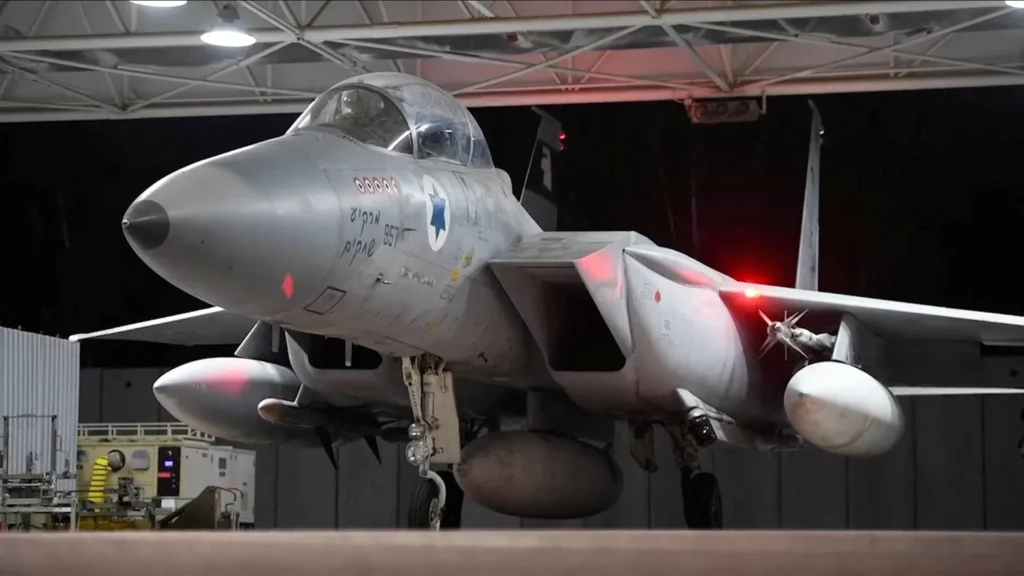An EU spokesperson issued a statement on Saturday evening after the Israeli air strikes against Iran during the night between Saturday and Sunday.
In what the statement calls a “retaliatory attack”, following the Iranian attack on Israel on 1 October with 180 ballistic missiles, the spokesperson acknowledged Israel’s right to self-defence. The Iranian attack followed Israel’s killings of Hamas leader Ismail Haniyeh in Tehran and Hezbollah leader Hassan Nasrallah in Beirut.
The Israeli airstrikes involved up to 100 planes and targeted military installations deep in Iran such as air defense batteries and sites for manufacturing and launching ballistic missiles. Iranian media reported that four soldiers were killed in the strikes and downgraded the damage caused in the strikes but it is still uncertain if Iran will respond.
To reduce the risk of a full-scale war, and following American pressure before the presidential elections, the air strikes did not target any oil installations and nuclear programme sites. Iran had threatened that it might attack oil installations in the Gulf states and disrupt the flow of oil exports via the strategic Strait of Hormuz which links producers in the Middle East with key markets across the world.
A previous Iranian attack on Israel on the night to 14 April, with more than 300 missiles and drones, was a retaliation for the bombing of an Iranian building in Damascus which had claimed the lives of seven Iranian operatives from the Iranian Revolutionary Guard Corps. The Iranian attack was effectively intercepted and prompted a minor Israeli response against an air defense battery.
But it was not enough to restore Israeli’s deterrence. The aim of the Israeli air strikes this time was to send a strong signal to Iran to refrain from attacking Israel directly and via its proxies in the region. The destruction of Iran’s air defense leaves it vulnerable if there would be a new round of reprisal attacks. Iran would then risk that its vital petrochemical industry would be targeted.
There are different voices in Iran, with extremists calling for an Iranian reprisal, and moderates inclined to find a diplomatic solution. The EU has condemned Iran’s unproportionate missile attacks against Israel and calls now on “all parties to exercise utmost restraint to avoid an uncontrollable escalation, which is in no one’s interest”.
If the moderates in Iran would get the upper hand, it would not only reduce the risk of a full-scale war in the region but could also contribute to a ceasefire in Lebanon leading to a political solution there. While Iran is continuing supporting its proxy Hezbollah in Lebanon, it has avoided joining it in attacking Israel. Now it is unlikely that it has the capacity to do it.
In his speech on Thursday at the Paris conference in support of Lebanon’s People and Sovereignty, EU’s foreign policy chief, High Representative Josep Borrell, outlined a number of action points for a political solution in Lebanon. The conference raised around €1 billion in pledges for humanitarian aid and military support to help Lebanon to regain its independence and become a functioning state.
Starting with a ceasefire, Borrell listed the following points: organizing long over-due presidential elections, giving a much more robust mandate to the UN troops (UNIFIL) in southern Lebanon, implementing UNSC resolution 1701, deploying Lebanese government forces throughout the country, and providing emergency and humanitarian aid to the Lebanese people.
While the action points presented by the High Representative reflect the common EU position adopted at the latest European Council meeting, he did not elaborate on the time horizon and how the points are inter-linked. Asked by The Brussels Times if the points were based on a plan or analysis, a Commission spokesperson replied that Borrell is engaged with all parties in the conflict.
M. Apelblat
The Brussels Times

